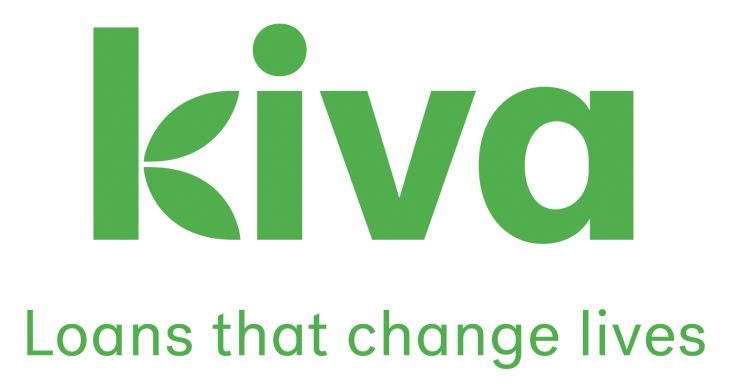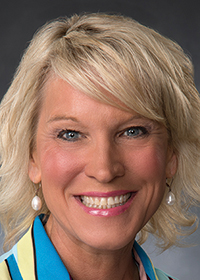In 2 years, Kiva Northwest Arkansas tops $500,000
by January 24, 2022 2:00 pm 1,435 views

Microloan nonprofit Kiva reached a significant milestone earlier this month in Northwest Arkansas.
With its 58th fully funded loan, Kiva Northwest Arkansas surpassed $500,000 in crowdfunded loans since launching in December 2019.
A $4,500 loan to Creative Corner on Broadway, a retail shop in downtown Siloam Springs, put the Northwest Arkansas affiliate over the half-million mark.
Martha Londagin is an executive consultant and capital access manager for Fayetteville’s Startup Junkie Foundation, Kiva’s field partner in Northwest Arkansas. She oversees Kiva’s Northwest Arkansas hub with support from program associate Alvin Singh. Londagin said Startup Junkie’s involvement as a Kiva partner is to evaluate and endorse the businesses involved in the microloan program.
Londagin said Kiva made 54 of the 58 loans to woman-owned, minority-owned or woman/minority-owned businesses in Northwest Arkansas. The other four operate businesses that support disadvantaged persons or groups in their communities.
The Northwest Arkansas hub is the first Kiva lending program in Arkansas and funds a tremendous diversity of small businesses and other socially beneficial activities.
“What I am most pleased about is the power of these loans to uplift the spirit and confidence in these borrowers,” Londagin said. “People who think no one is ever going to help them see an entire community in Northwest Arkansas and throughout the world believe in them by loaning them money. Even though no one in their family ever owned a business, and they’ve been turned down over and over, that is the joy of this program.”
HOW IT WORKS
Established in 2005, Kiva is a nonprofit based in San Francisco with offices and staff worldwide.

The requirements of traditional lenders like banks — including credit history, collateral, citizenship and financial performance verification — can be a barrier to startups, especially for women and minorities.
For those individuals, Kiva offers no-fee, no-interest loans of up to $15,000, crowdsourced from lenders worldwide. Since Kiva loans carry 0% interest rates, lenders don’t profit from their loans. Neither does Kiva, which is why it’s a nonprofit.
Kiva’s crowdsourced micro-lending platform is designed to help alleviate poverty by providing startups and underserved entrepreneurs the funds they need to get their business off the ground.
Many industries are represented by Kiva borrowers. Farmers, artisans, students, shopkeepers, builders and restaurant owners may be among them. To support their families, many Kiva borrowers work multiple jobs.
Here’s how the process works, from application to repayment. Potential borrowers apply online through Kiva (kiva.org). Kiva posts the borrower’s information on its public loan page upon approval. Individuals crowdfund loan requests. Once the loan is fully funded, the borrower receives the money within 60 days.
The borrower repays the money according to a predetermined schedule via the Kiva repayment system using PayPal. PayPal donates its service for free to Kiva. Lenders can use the returned funds however they like, including to fund a new Kiva loan.
The Northwest Arkansas hub was made possible through technical assistance provided by Startup Junkie and funding from the Walton Family Foundation. That included an original dollar-for-dollar matching loan fund for borrowers in Washington and Benton counties to help them reach their approved loan goal faster.
Individuals with difficulty obtaining traditional loans can take advantage of the Kiva loans. A Kiva loan comprises five to 40 initial local contributions of as little as $25 before launching to the national community, where a borrower can access up to $10,000. The process does not require a credit score, collateral pledges or proof of U.S. citizenship.
The repayment rate for Kiva loan borrowers is approximately 78% in the U.S.
Through the Kiva Northwest Arkansas Hub, the Startup Junkie Foundation provides consulting and technical assistance to borrowers and small business owners. That includes assistance with the Kiva online application process, working with them step-by-step to increase the likelihood of Kiva loan raising approval.
While borrowers can seek loan approval through Kiva without going through the Hub, Londagin said having a local partner like the Startup Junkie Foundation and the Kiva Capital Access Manager (CAM) increases the likelihood of success for local entrepreneurs and business owners.
Londagin said Kiva helps small entrepreneurs access capital and make better lives by removing the barriers.
“If we truly believe entrepreneurship is everyone, that means people with low credit scores,” Londagin said. “That means people with felony records for a drug conviction. I come from a family with multiple felons, so that’s very near and dear to my heart. Entrepreneurship may be the only way people emerging from prison with a felony record can get a job and earn money for their families.
“[Kiva] serves so many needs. We can tell people to dream, and we’ve got lots of resources in Northwest Arkansas to help them start a business. But they have to have some capital to start it correctly and grow it. Kiva fills that void.”
INCREASING IMPACT
Londagin said that one of her favorite Kiva success stories in Northwest Arkansas is a Snap-On Tools franchise owner in Springdale. Londagin said she could only refer to him as Shane because of Kiva’s privacy policies.
In May 2016, Shane started as a Snap-On company store manager and brought in more than $1.4 million in paid sales over the next four years. Because of that success, he started thinking about buying a Snap-On franchise and owning the Northwest Arkansas tool sales route.
Because he was a successful employee-manager, Londagin explained that Snap-On offered Shane the chance to buy the territory rights, a 20-foot truck and $150,000 worth of inventory for a $10,000 down payment, a price that’s usually $30,000.
He is now the first Hispanic Snap-On franchise owner in Northwest Arkansas.
“He was referred to me by a bank who could not fund him because the loan amount was so small and he had no collateral,” Londagin said. “But the banker was so passionate about him buying his truck and franchise. He just needed $8,500. [Snap-On] gave him a deal, but he still had to get the money. And now his children have a father who is a business owner, not just a dad who has a job. That’s the power. These are loans that change lives. Lives, plural. For families, communities, neighborhoods. It shows them a pathway.”
As Londagin continues to help small businesses in Northwest Arkansas navigate the Kiva process, she hopes to increase the program’s impact.
“The No. 1 goal is to make sure we empower people who are cautious or scared or inexperienced in the lending arena; that’s our No. 1 goal,” she said. “I would love to process four loans each month, but we don’t stay concentrated on the numbers. We stay concentrated on the people. If we can help one person every month grow a business whose family never had a small business, the ripple effect is tremendous. Children have a parent who owns a business. Neighbors see their neighbor own a business in a neighborhood where everybody works for somebody else.”
